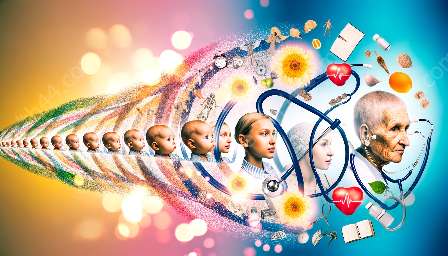Infancy and early childhood are critical stages in human development, laying the foundation for physical, cognitive, and socioemotional well-being throughout the lifespan. Understanding the intricacies of these formative years is essential for health education and medical training. This comprehensive topic cluster delves into the various aspects of infancy and early childhood development, considering their relevance to lifespan development, health education, and medical training.
Physical Development
The physical development of children from birth to age eight undergoes rapid and significant changes. This period is marked by milestones such as motor skill development, sensory enhancement, and growth in height and weight. Infants go through substantial changes in their body size, proportions, and overall physiognomy, while early childhood sees the consolidation of these physical changes and the development of finer motor skills, such as hand-eye coordination. An understanding of these physical developments is crucial in diagnosing and addressing potential health issues, as well as providing appropriate medical care and guidance.
Cognitive Development
The cognitive development of infants and young children encompasses the growth of intellectual abilities, thought processes, and problem-solving skills. From the sensorimotor stage of infancy to the preoperational stage in early childhood, children acquire language, memory, and pretend play skills, thereby expanding their cognitive capacities. Health education and medical training benefit from a deep understanding of cognitive development, aiding in the identification of developmental delays and the design of tailored interventions to support optimal cognitive growth.
Socioemotional Development
Socioemotional development during infancy and early childhood involves the formation of social relationships, emotional regulation, and the emergence of self-identity. Infants initially form attachments, while young children begin to understand and express complex emotions, navigate peer relationships, and develop their sense of self. Comprehensive knowledge of socioemotional development allows health educators and medical professionals to promote healthy social interactions, identify potential emotional or behavioral concerns early on, and provide appropriate guidance and support.
Lifespan Development
Infancy and early childhood serve as the building blocks for lifelong development. Understanding the unique challenges and opportunities of this period in the context of lifespan development is crucial for medical practitioners and health educators. By recognizing the interplay between early experiences and later outcomes, professionals can implement preventive measures, early interventions, and personalized care plans that take into account the long-term implications of early development.
Impact on Health Education and Medical Training
The knowledge of infancy and early childhood development significantly influences the fields of health education and medical training. Educators and practitioners equipped with an in-depth understanding of early development can effectively communicate with caregivers, identify potential health or developmental concerns, administer appropriate screenings and assessments, and offer tailored guidance and support to ensure the overall well-being of infants and young children.
In conclusion,
Infancy and early childhood development form the bedrock of human growth and well-being. Their impact resonates across the entire lifespan, making them indispensable areas of study for professionals in health education and medical training. By comprehensively examining the physical, cognitive, and socioemotional aspects of infancy and early childhood, this topic cluster emphasizes their relevance to lifelong development and equips individuals in the health and medical fields with the necessary insights to promote optimal outcomes for the next generation.


